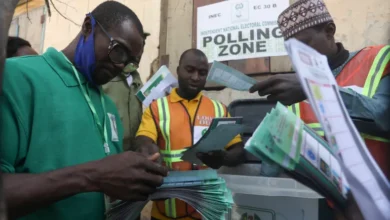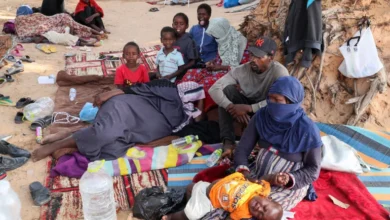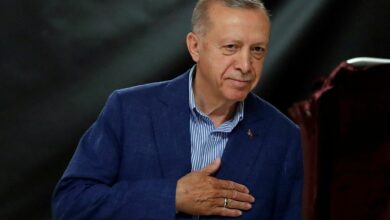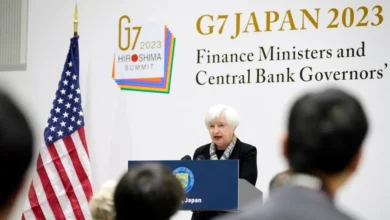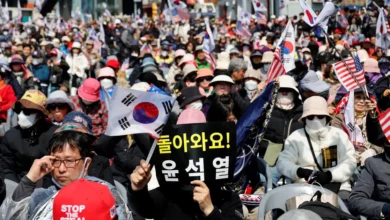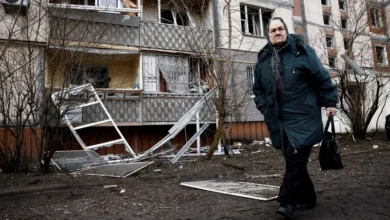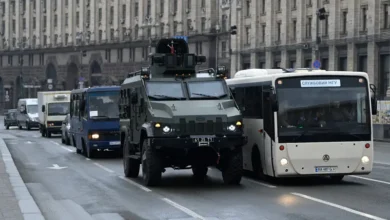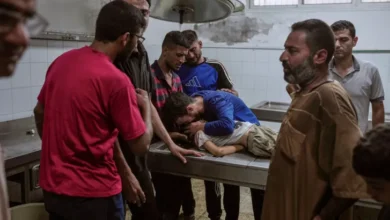As Russia’s war reaches milestone, Ukrainians count their personal losses
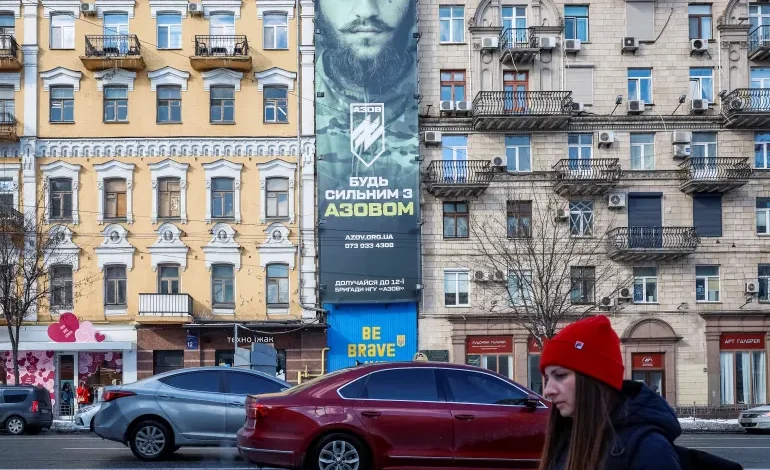
Olha, a 52-year-old nurse from the southern Ukrainian town of Voznesensk, feels as though the fear of war will never leave her, three years into Russia’s full-scale invasion of her country.
In early March 2022, days after the war ordered by President Vladimir Putin began, her town “was like a bone in the throat” of the Russian army as it advanced northwards from annexed Crimea.
They were on the left bank of the Southern Bug River, 1.5km (1 mile) away from her tiny house that stood next to a military base.
Huddled together and horrified, her paralysed mother, 79, disabled husband and teenage son saw, heard and hid from one of the Russian-Ukrainian war’s key battles.
Ukrainian forces blew up bridges, shot at Russian tanks and infantry, downed a helicopter – and thwarted Russia’s advance towards the nearby southern Ukrainian nuclear power station, the cities of Odesa and Mykolaiv.
More importantly, the Russians could not reach the Moscow-backed separatist province of Transnistria in neighbouring Moldova, 135km (85 miles) southwest of Voznesensk.
Looking back, Olha remembered with pride how the town’s residents “grouped together” to fill sandbags, build barricades, man checkpoints and help each other.
Russians retreated, but not far – and kept pummelling Voznesensk with such frequency that her husband was forced to change the roof and windowpanes three times.
When hiding in the basement, they had shovels at hand in case they needed to dig themselves out – and checked on neighbours after each shelling.
But Olha’s elder son was in a worse situation.
He lived in Bucha, a northern Kyiv suburb where Russians killed hundreds of civilians, with his in-laws.
“Had I been closer [to Bucha], I would have run to him,” she said.
They “miraculously” left Bucha on March 13.
“We still haven’t talked about what happened,” Olha said.
On August 20, 2022, a Russian missile destroyed a five-storey apartment building in Voznesensk, wounding 14, including three children.
A quarter of the town’s population fled and was replaced by refugees from Russia-occupied areas.
But Olha’s family stayed on, finding solace in tending to their garden.
“There are missiles flying, and we’re planting and watering,” she said. “We didn’t know whether we’d be alive, but we built a second greenhouse.”
Then there were blackouts and shortages of food and incontinence pads for her mother, who was born during World War II – and died in June 2022 of natural causes.
“Poor thing, she was born during a war and died during a war,” Olha said.
Russian forces retreated further south in November 2022, and the shelling subsided.
These days, all Olha wants is a “just peace” – something United States President Donald Trump is not ready for, she said.



